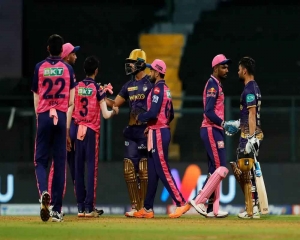In another laurel to the National Institute of Technology, Rourkela (NITR), finally, Prof Subrata Kumar Panda (Mechanical Engineering) along with his BTech student Souvik Biswas (2018 batch) and PhD graduate Dr Chetan Kumar Hirwani (2018 batch) received a patent for an invention entitled ‘Fatigue and Creep Testing Machine for Nonmetallic/Composite Materials’.
The trio on behalf of NIT Rourkela had filed for patent in the year 2018 and now the invention has been granted patent for 20 years by the Patent Office, Government of India under the provisions of Patents Act 1970.
The Fatigue and Creep Testing Machine provides a platform for estimating the fatigue life cycle of composite panels. Composite panels are sandwich structures that consist of multiple layers bonded together to create multilayer sheets, cored laminates, or industrial structural panels. They are made from a variety of metal, plastic, wood, ceramic, glass, and fiber-based composite materials. They are often used extensively for external walls, internal structures and roof construction on commercial buildings.
Explaining more on the use of the invention, Prof Subrata Kumar Panda said, “Let’s understand this with an example. When we use charger of a mobile, the wire often gets damaged by extensive folding, strangling or using it. Through this machine one can get the estimation that how many times the folding or bending of the flexible material can be done before it fails. Same way, when the composites panels are used in construction of building or anything where bending is a common mode of failure, one can predict the entire product life cycle. It is expected to have commendable utilisation in the field of defence, aviation and automobile related industries where
fibre/particulate/flakes-reinforced composite including the current households.”
The inventors claim that it is capable of time dependent deformation tests where a component is vulnerable to creep failure over a prolonged period. Practically, industries concerning turbine blades, aircraft overhangs, compressor vanes, automotive panels etc are expected to benefit from the invention.
Prof Panda was also listed for Stanford University’s Top 2% Scientists of the world for the year 2020. Last year, he along with Prof Siba Sankar Mahapatra (Mechanical Engineering) and student of NIT Rourkela Prakash Sarangi (2010-14 batch, Mechanical Engineering) had filed for patent for an ‘Automated Gupchup Machine’and he was granted the patent.
NITR Prof granted patent for his machine
Thursday, 01 September 2022 | AUROBINDA DAS ROURKELA
NITR Prof granted patent for his machine
Thursday, 01 September 2022 | AUROBINDA DAS ROURKELA

























